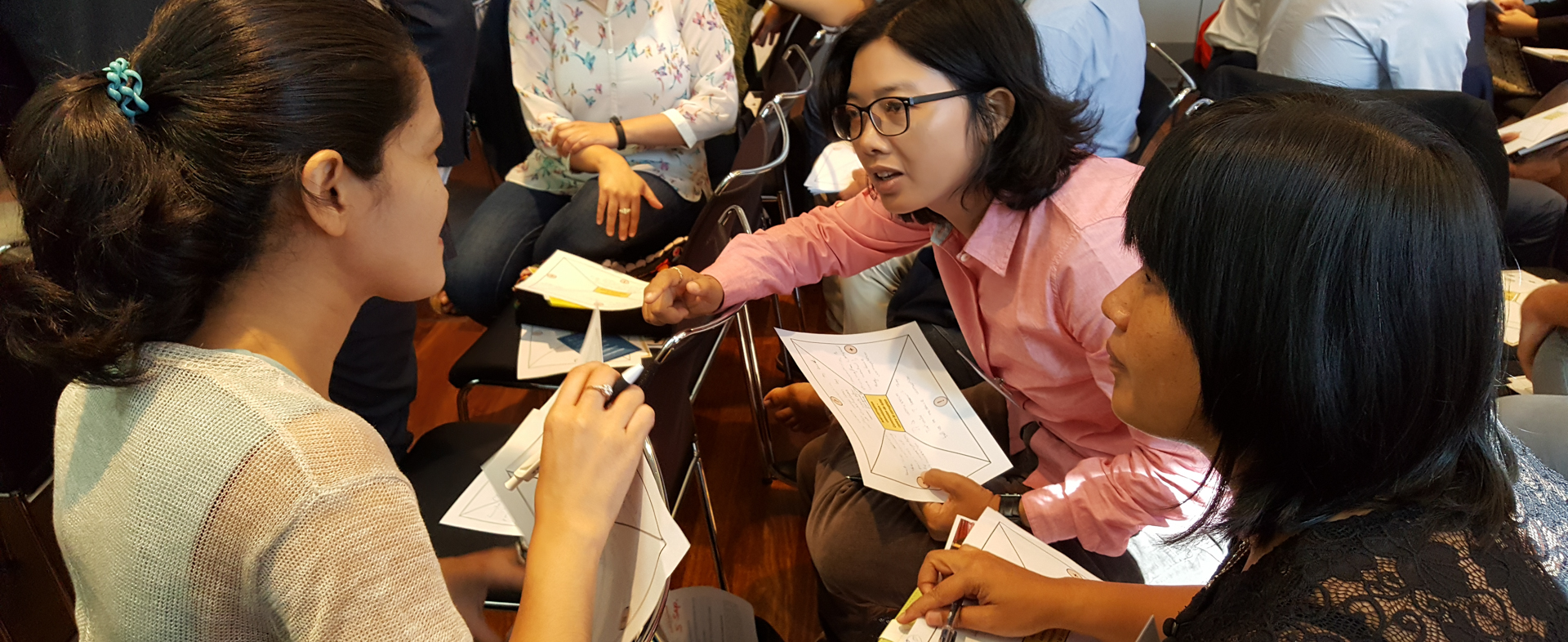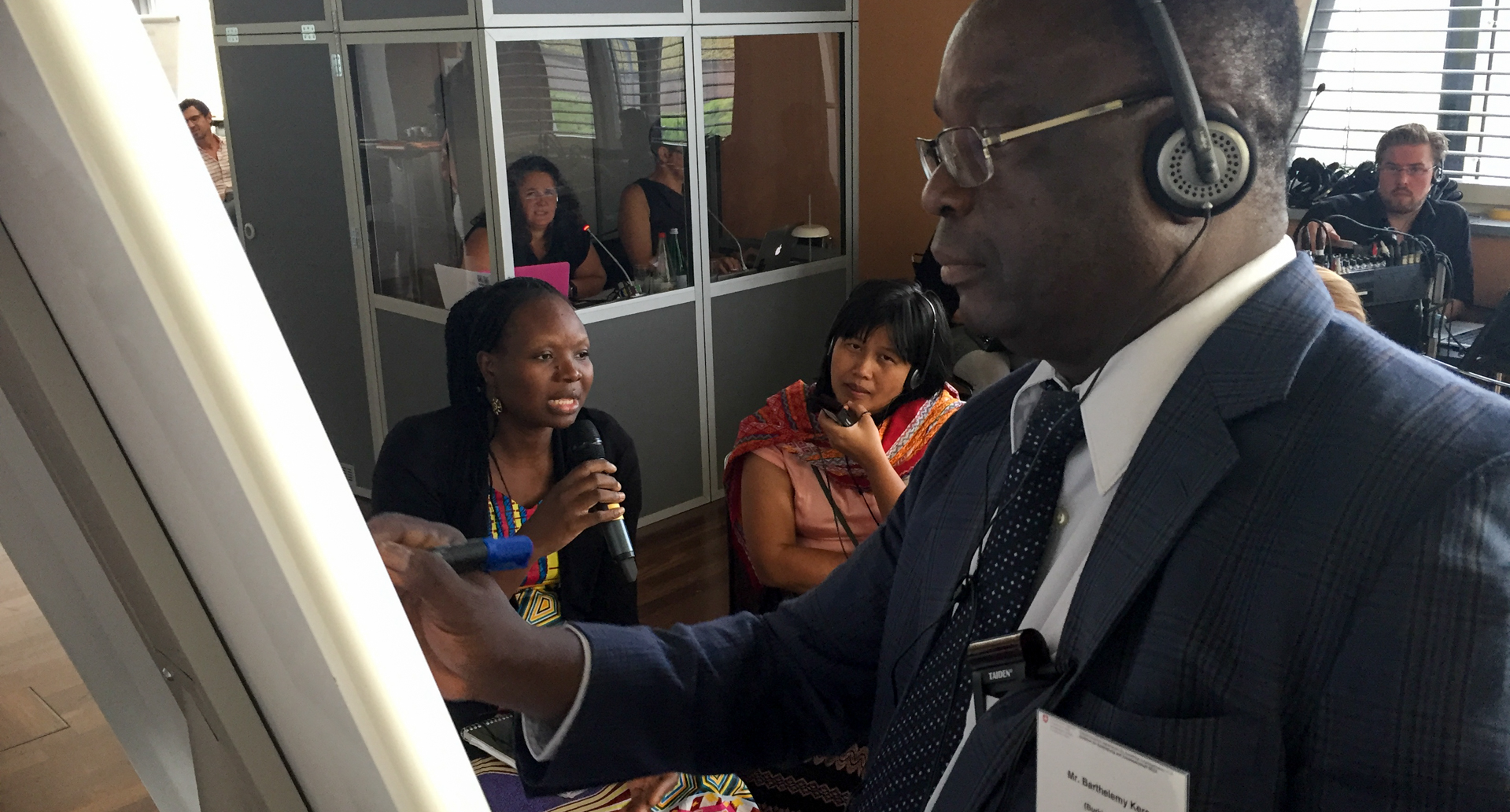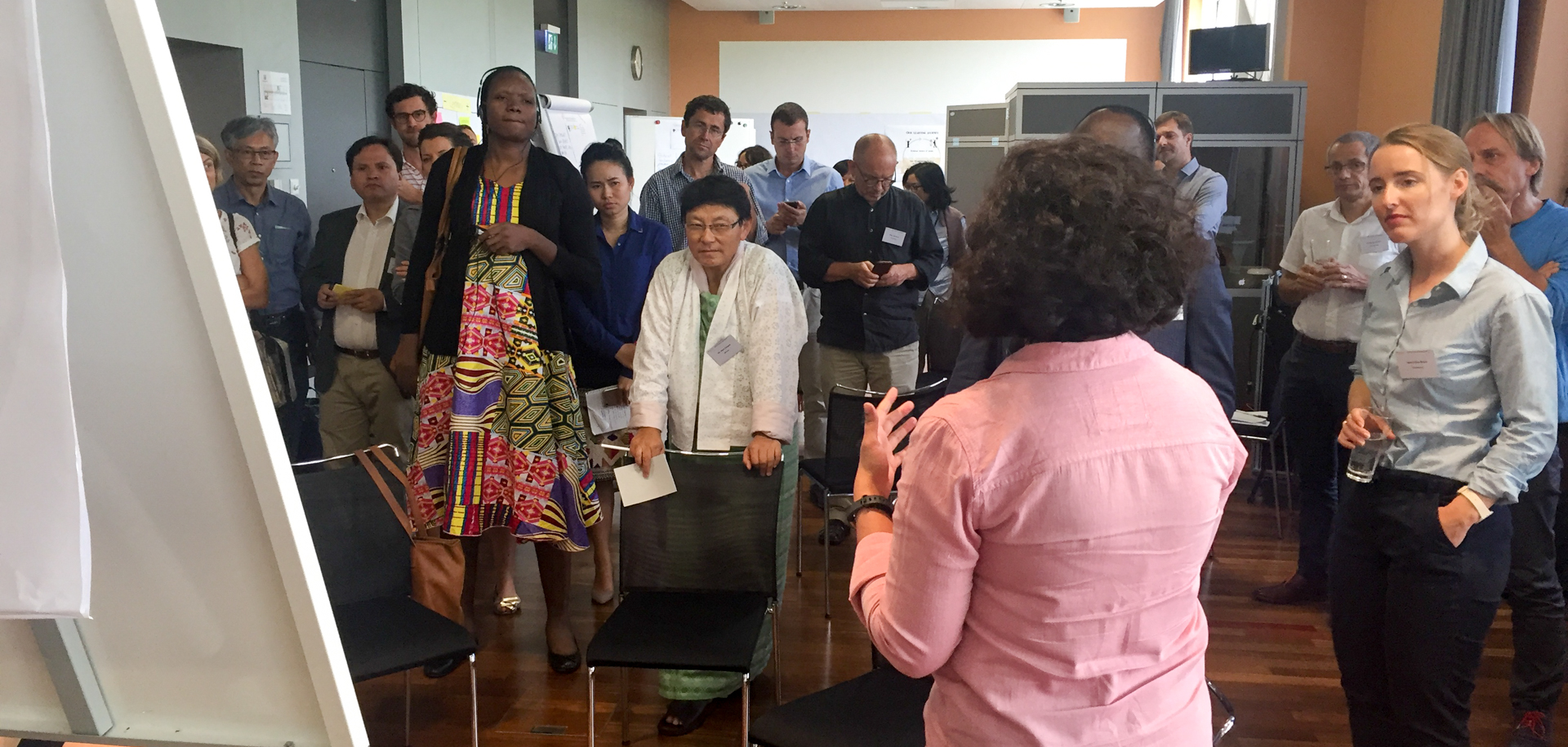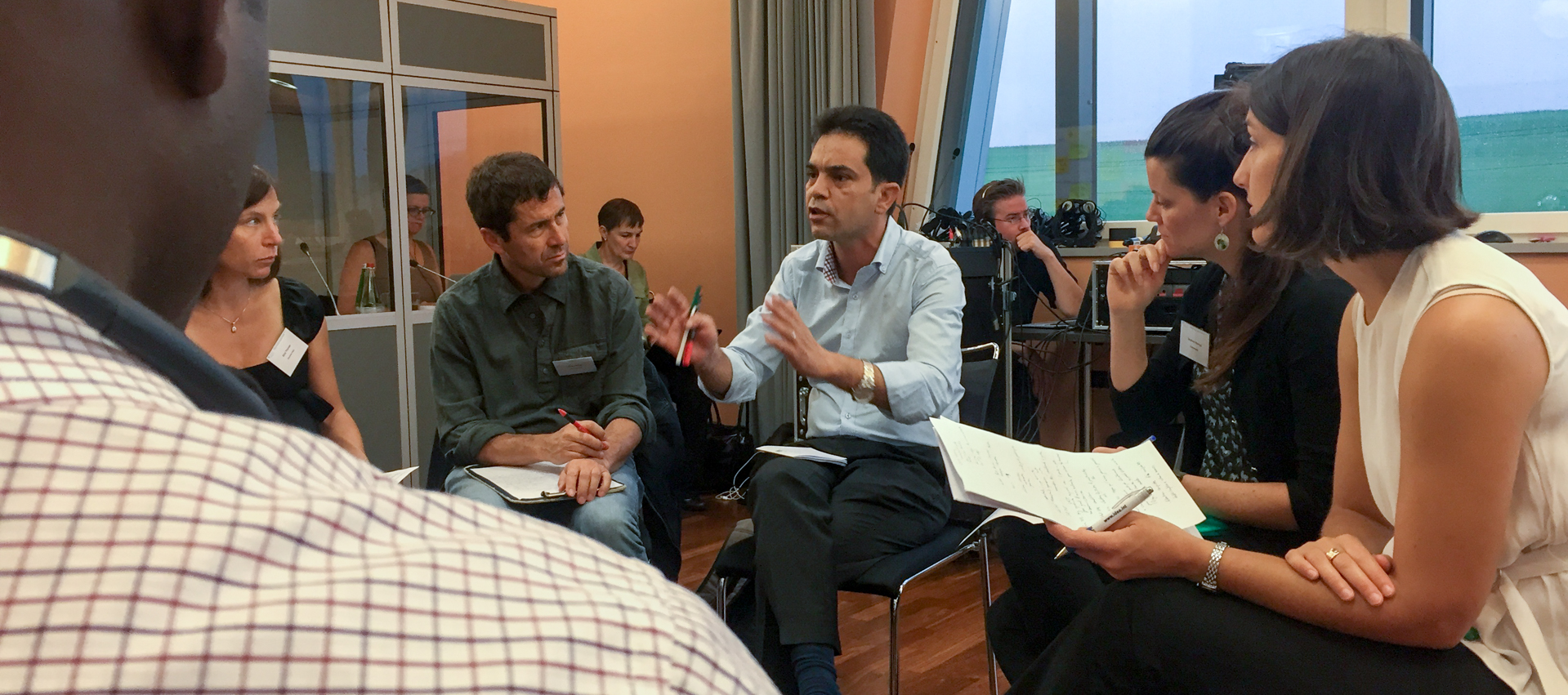Learning Retreat on National Oversight Institutions /
Independent State Institutions29 - 31 August 2017, Bern, Switzerland
 Here you find all the documents relevant for the learning retreat, organised by day. For the full learning retreat experience please visit our mobile friendly event page:
2017.ddlgn.ch. If you would like to know our goals for this learning retreat, please read our
concpet paper.
Other venue documents, are:
Venue Information | Download program (ENGLISH) | Téléchargez le programme (FRENCH) |
Learning journey personal notes
Let's start learning! Here below are all the background documents and videos sorted by topic.
Our learning journey started with a welcome note from Corninne Huser (focal point ddlgn) and Nils Rosemann (focal point CHRnet). You can watch their speech HERE. They passed the microphone to Erika Schläppi who gave a general inroduction to the topic. Read her
PowerPont presentation or watch the
video. From then on the participants jumped right into the first of four topics.

Documents, links and videos for each topic can be found here below as well as on the designated
event page.
Anti-corruption commissions (day 1)
Here you find all the documents, power point presentations, etc. for day 1.
Documents ACC
SDC
|
2012
| Global, Jakarta Statement onPrinciples for Anti-Corruption Agencies SDC
|
2017
| South Asia, Summary of main points. U4
|
2017
| Global, On anti-corruption commissions CMI, U4
|
2017
| Global, Achieving success And Avoiding fAilure in Anti-corruption commissions: developing the role of donors CMI, U4
|
2017
| Global, Bespoke monitoring and evaluation of anti-corruption agencies
Further documents ACC
U4
|
2005
| West Africa, East and Southern Africa, The cases of Ghana, Malawi, Tanzania, Uganda & Zambia CMI, U4
|
2016
| Global, A comparative mapping CMI, U4
|
2015
| Global, Appointment and removal procedures for anti-corruption agency leadership CMI, U4
|
2017
| East and Southern Africa, The decision of whether to equip specialised anti- corruption agencies with prosecutorial powers requires the consideration of an expansive list of potential advantages and disadvantages. CMI, U4
|
2011
| Global, Guidelines for agencies, donors, and evaluators USAID
|
2006
| Global, USAID Missions and other international donors are faced with many questions as they provide advice and assistance to host country governments on their efforts to combat corruption. This program brief is intended to assist DG Officers by outlining the critical questions around the establishment and workings of a host country’s ACA. ACC Bhutan
|
2017
| South Asia, This guideline is meant to help public officials and organizations manage Conflicts of Interest prudently by developing their own policy/ies on managing Conflicts of Interest. It describes what Conflict of Interest is, when a public official could find himself or herself in a situation where there is a conflict, explains when the conflict is severe enough to warrant Managing Conflict of Interest in the Public Sector 20172taking action, its management options and processes for developing Conflicts of Interest policy/ies ACC Bhutan
|
2008
| South Asia, The first Corruption Perception Survey of ACC Bhutan contains diverse information on corruption. The main objective was to develop baseline information on corruption with the emphasis on forms, sectors, causes and trends.It provides a rich pool of information for a greater choice of focus for further study. ACC Bhutan, UNDP, SDC
|
2017
| South Asia, REVIEW OF THE ETHICS AND INTEGRITY INFRASTRUCTURE IN BHUTAN ACC Bhutan
|
2016
| South Asia, The National Corruption Barometer Survey (NCBS) was conducted by Bhutan Transparency Initiative to assess the Bhutanese citizens’ perception of corruption and to establish a reference point for awareness, education, and advocacy on corruption prevention. It was the first survey of its kind ever conducted in Bhutan. ACC Bhutan
|
2013
| South Asia, Th is is the second National Integrity Assessment conducted by the Anti-Corruption Com-mission in collaboration with the National Statistics Bureau, Royal Government of Bhu-tan. Th e assessment was based on the services provided in the year 2011 and was primarily aimed at improving the level of integrity in the country through proper diagnosis of corruption prone areas and accordingly come up with eff ective anti-corruption policies. ACC Bhutan
|
2014
| South Asia, This second national strategy has been developed on the basis of an in-depth analysis of the implementation progress made under the previous strategy, and a growing understanding of corruption risks and trends in Bhutan as summarized in the previous section. Transparency International
|
2017
| East Asia, Executive Summary Regional Synthesis Report Key Findings and Recommendations

Supreme Audit Institutions SAIs (day 2)
Here you find all the documents, power point presentations, etc. for day 2.
Documents SAIs
SECO, SDC
|
2017
| Global, Supreme Audit Institutions (SAI) SDC Learning Retreat SECO/WEMU Presentation SDC
|
2017
| Western Balkans, SDC support to State Audit InstitutionSerbia

National Human Rights Institutions NHRIs (day 2)
Here you find all the documents, power point presentations, etc. for day 2.
Documents NHRIs
International Council on Human Rights Policy, UN
|
2005
| Global, Report: Assessing the Effectiveness of National Human Rights Institutions United Nations
|
2010
| Global, History, Principles, Roles and Responsibilities of National Human Rights Institutions The Danish Institute for Human Rights
|
2017
| Global, Introduction to National Human Rights Institutions
Further reading documents NHRIs
The Danish Institute for Human Rights
|
2017
| Global, ANNOTATED BIBLIOGRAPHY OF ACADEMIC RESEARCH ON NHRI EFFECTIVENESS GANHRI
|
2017
| Global, On the website of GANHRI, you will find the Paris Principles as well as resolutions developed to guide NHRIs on accreditation and implementation of the Paris Principles. Most documents are available in French, English, Arabic and Spanish. The Danish Institute for Human Rights
|
2016
| Global, The purpose of this review is to provide an overview of the available literature on NHRIs and to disseminate the main issues and discussions raised in that literature. The idea here is to draw a roadmap that will allow interested readers to navigate in the wealth of information, sources and approaches.

Election management bodies EMBs (day 3) Here you find all the documents, power point presentations, etc. regarding EMBs.
Documents EMBs
IDEA, SDC
|
| Global, This Handbook was developed for electoral administrators and those involved in reforming EMBs. It provides comparative experience of and best practices on EMB structures and funding models, as well as means for evaluating performance. CENI
|
2017
| West Africa, Power point presentation IDEA
|
2017
| Global, Electoral Management and Justice Bodies
Key Pillars of Democratic Societies
Further documents EMBs
Routledge
|
2016
| Global, By drawing upon the literature that diagnoses the gap between academics and practitioners, this article categorises and describes the traditional democracy promotion tools developed by international governmental and non-governmental organisations to bridge the gap between knowledge and practice. CENI BURKINA-FASO
|
2016
| West Africa, Depuis vingt ans, dans la quasi-totalité des Etats africains, les élections se multiplient à la fois sous la pression des attentes croissantes des populations en matière de démocratisation et les exigences non moins croissantes de la communauté internationale qui conditionne la reconnaissance d’un régime politique et de l’octroi de l’aide à la tenue d’élections libres et indépendantes. Les Commissions électorales indépendantes sont apparues comme une réponse et une solution à cette problématique de crédibilité des consultations électorales. IDEA, SDC
|
2017
| Global, This guide captures lessons learned from all continents for facilitators of voluntary codes of conduct. It offers a menu of options and case studies from across the globe, with a focus on the importance of process and facilitation as much as the content of the agreements.
The way forwardThe last workshop module was on the way forward: What do we take home? How do we continue working on these subjects? Corinne Huser (focal point ddlgn) and Inanna Göbel-Bosch (deputy focal point CHRnet) addressed this question in their closing remarks:Our learning journey The learning retreat is not only a moment to pile-up new knowledge. It is also a moment to reflect on on our everyday work process. What does it take to be better at what we do? For this we take you on a learning journey asking you 4 questions to reflect upon during the period of the workshop.
|
